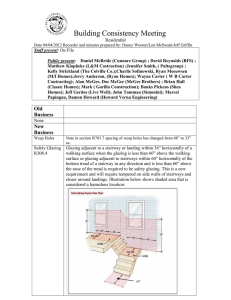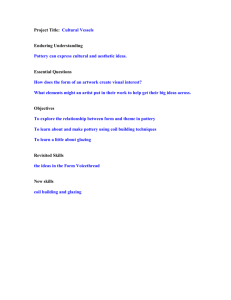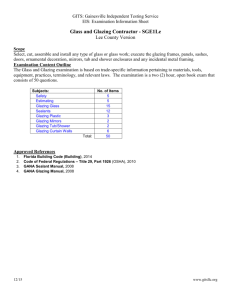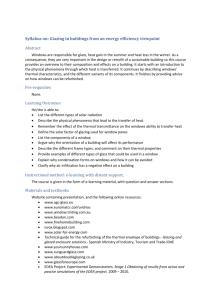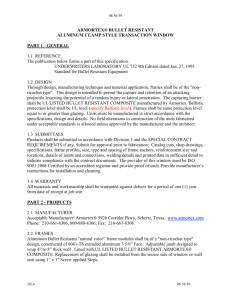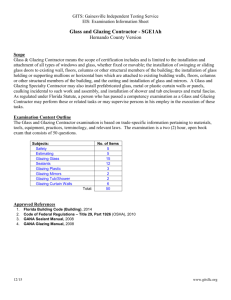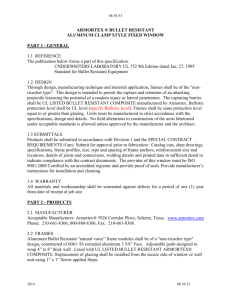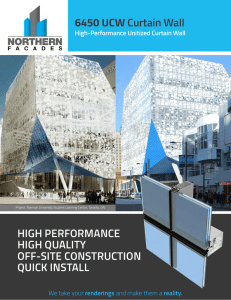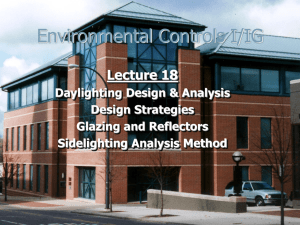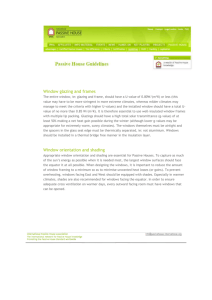A quick guide to sustainable design principles 1) Northern glazing
advertisement
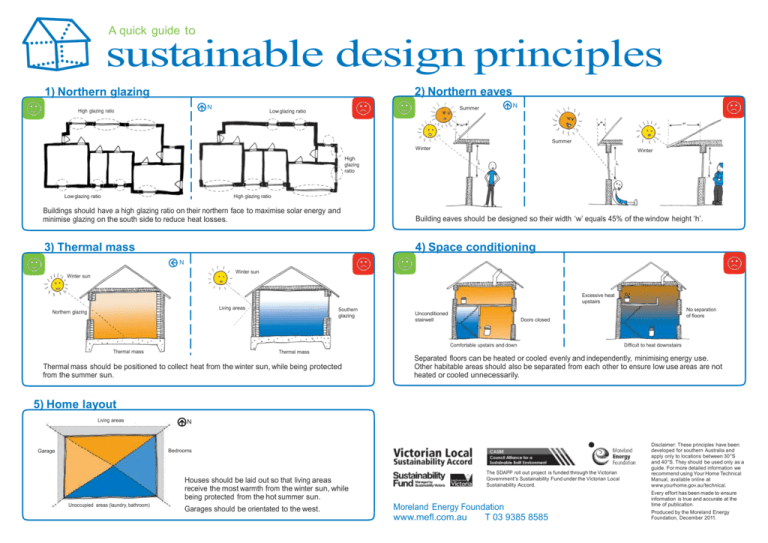
A quick guide to sustainable design principles 2) Northern eaves 1) Northern glazing N High glazing ratio Summer Low glazing ratio N Summer Winter Winter High glazing ratio Low glazing ratio High glazing ratio Buildings should have a high glazing ratio on their northern face to maximise solar energy and minimise glazing on the south side to reduce heat losses. Building eaves should be designed so their width ‘w’ equals 45% of the window height ‘h’. 3) Thermal mass 4) Space conditioning N Winter sun Winter sun Excessive heat upstairs Living areas Northern glazing Southern glazing Unconditioned stairwell Doors closed Comfortable upstairs and down Thermal mass No separation of floors Difficult to heat downstairs Thermal mass Thermal mass should be positioned to collect heat from the winter sun, while being protected from the summer sun. Separated floors can be heated or cooled evenly and independently, minimising energy use. Other habitable areas should also be separated from each other to ensure low use areas are not heated or cooled unnecessarily. 5) Home layout Living areas N Bedrooms Garage Houses should be laid out so that living areas receive the most warmth from the winter sun, while being protected from the hot summer sun. Unoccupied areas (laundry, bathroom) Garages should be orientated to the west. The SDAPP roll out project is funded through the Victorian Government’s Sustainability Fund under the Victorian Local Sustainability Accord. Moreland Energy Foundation www.mefl.com.au T 03 9385 8585 Disclaimer: These principles have been developed for southern Australia and apply only to locations between 30°S and 40°S. They should be used only as a guide. For more detailed information we recommend using Your Home Technical Manual, available online at www.yourhome.gov.au/technical. Every effort has been made to ensure information is true and accurate at the time of publication. Produced by the Moreland Energy Foundation, December 2011.
